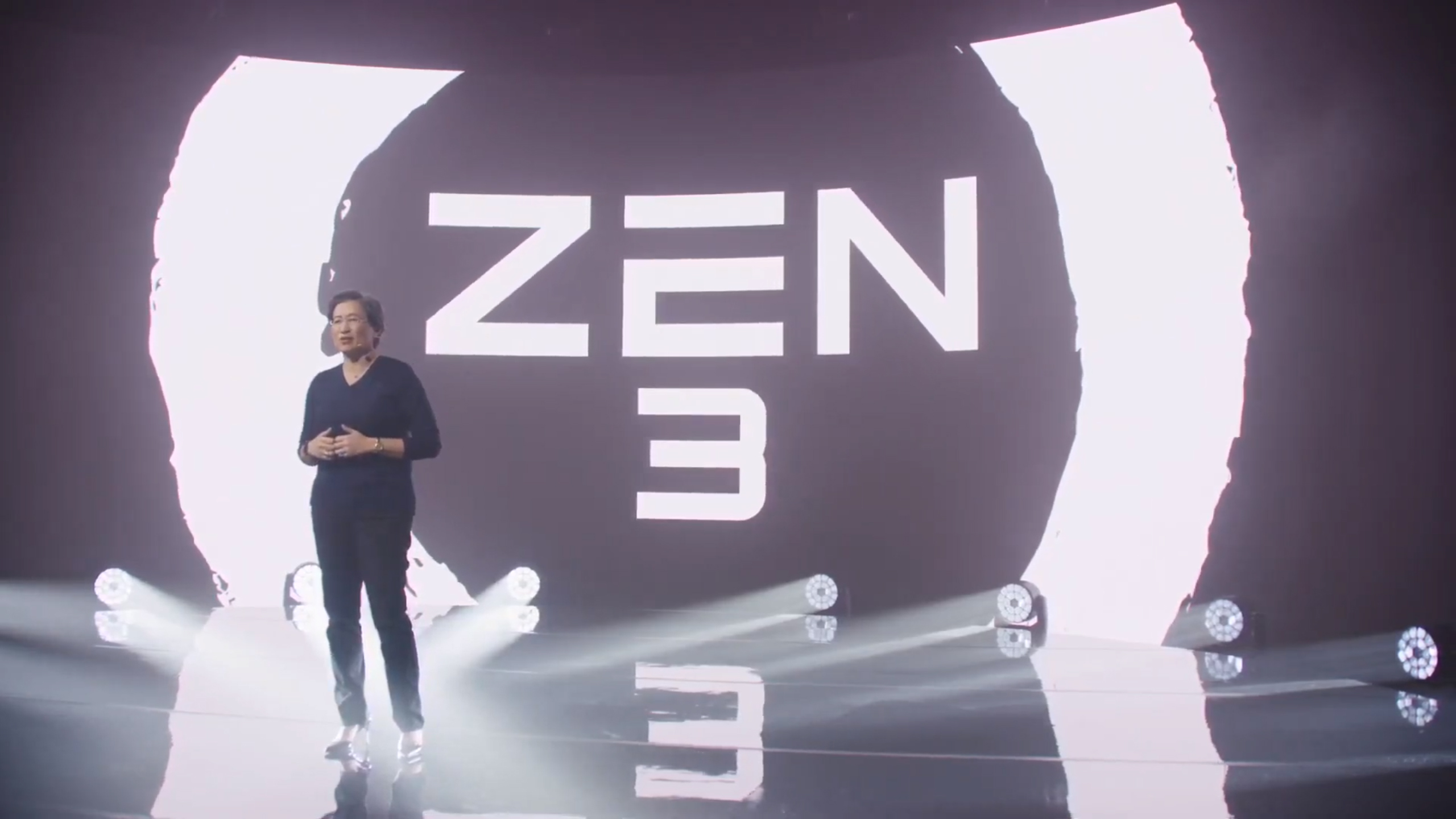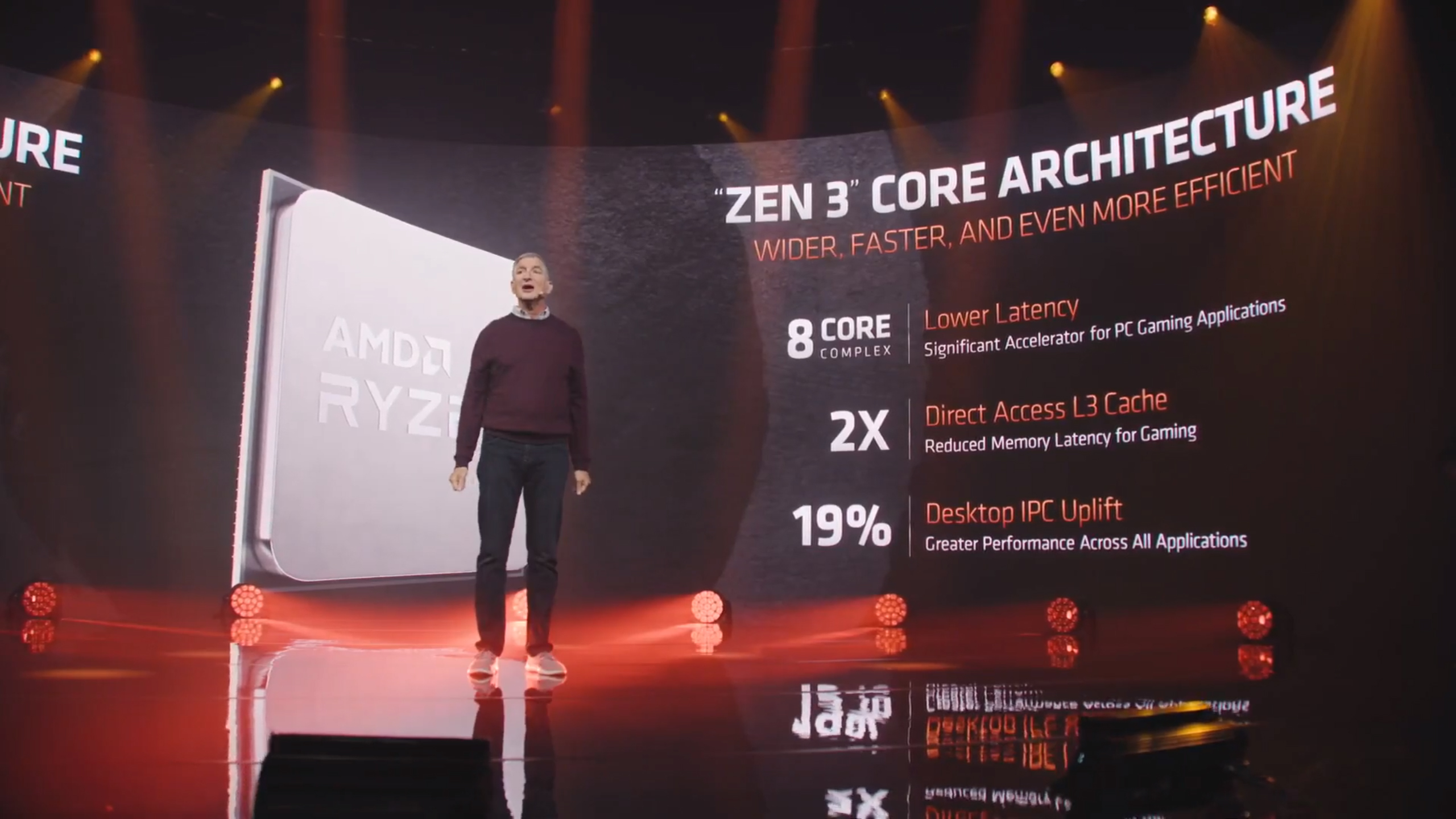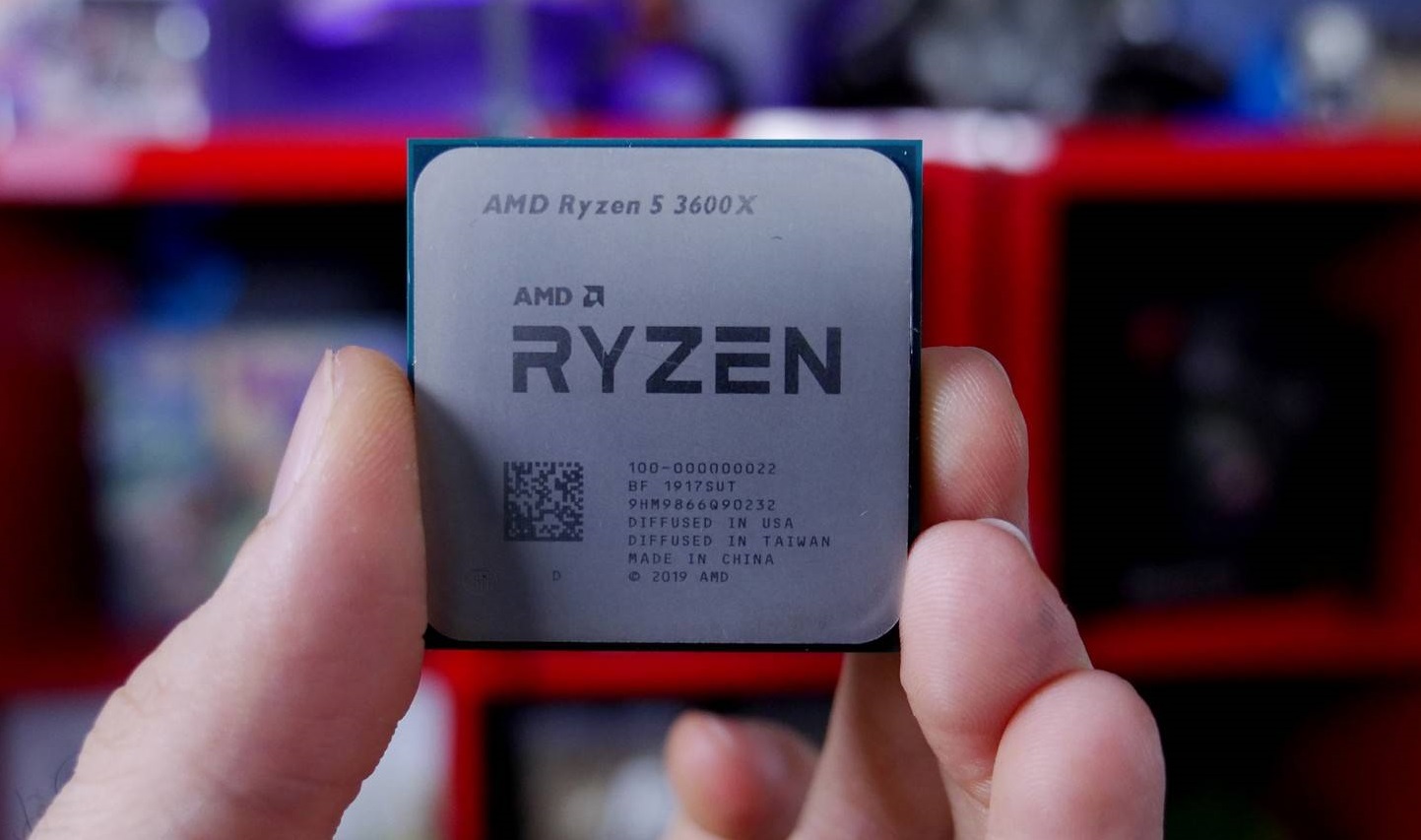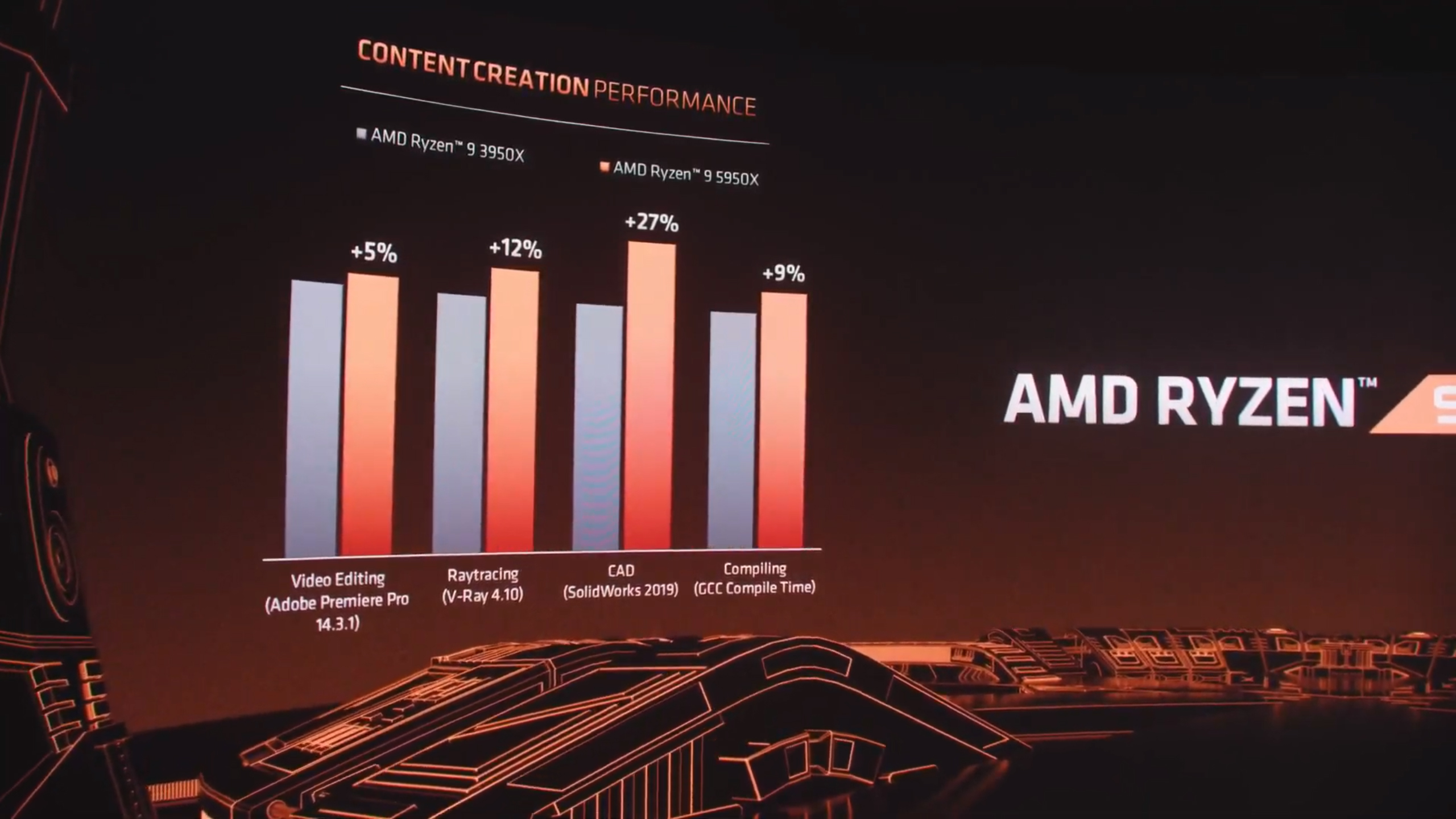AMD Zen 3 release date, specs and price: everything we know about AMD Ryzen 5000

AMD has shown off its new Zen 3 architecture, which will be powering its next generation Ryzen 5000 processors.
With the Zen 3 architecture, AMD claims it brings the best single threaded performance and gaming performance.
Zen 3 will bring higher max boost, a significant IPC uplift and lower latency thanks to a brand new architecture, while keeping its 7nm process, the company announced at a live event on October 8.
The new core layout will allow every core to directly access L3 cache, helping to cut latency in gaming. Mark Papermaster, CTO of AMD, claims this is AMD’s biggest leap in architecture in its history.
Zen 3 is “a clear desktop performance leader,” according to Papermaster.
So, exciting times for AMD. Here’s everything we know about the AMD Zen 3 architecture so far. Keep this page bookmarked as we’ll update it as soon as new information reaches our desks.
- Here are our picks for the best AMD GPU in 2020
Cut to the chase
- What is it? AMD’s improved 7nm+ CPU architecture
- When is it out? The first Zen 3 processors go on sale November 5
- How much is it? Starting at $299 (around £230, AU$420)

AMD Zen 3 release date
AMD has rolled out a short teaser video that gives AMD Zen 3 an October 8 launch date. At the event, we finally found out when we can expect the first Zen 3 processors.
Sign up for breaking news, reviews, opinion, top tech deals, and more.
The AMD Ryzen 9 5950X, AMD Ryzen 9 5900X, AMD Ryzen 7 5800X and AMD Ryzen 5 5600X will all launch globally on November 5.

AMD Zen 3 price
We now know the price of the first AMD Zen 3 processors:
- AMD Ryzen 9 5950X: $799 (around £620, AU$1,100)
- AMD Ryzen 9 5900X: $549 (around £420, AU$760)
- AMD Ryzen 7 5800X: $449 (around £350, AU$630)
- AMD Ryzen 5 5600X: $299 (around £230, AU$420)
These are pretty competitive prices compared to AMD's biggest rival, Intel. However, they do represent a price increase compared to AMD Zen 2 processors, which launched at the following prices:
- AMD Ryzen 9 3950X: $749 (about £590, AU$1,080)
- AMD Ryzen 9 3900X: $499 (about £390, AU$720)
- AMD Ryzen 7 3800X: $399 (about £310, AU$580)
- AMD Ryzen 7 3700X: $329 (about £260, AU$480)
- AMD Ryzen 5 3600X: $249 (about £200, AU$360)
- AMD Ryzen 5 3600: $199 (about £160, AU$290)
- AMD Ryzen 5 3400G: $149 (£139, AU$240)
- AMD Ryzen 3 3300G: $99 (£94, AU$144)

AMD Zen 3 specs
We learned in mid-2019 that AMD had already finished the Zen 3 design, which is expected to be based on a 7nm+ process, offering some slight improvements on the existing 7nm process found in Zen 2 hardware. This new design is expected to be the product of a shift to 7nm EUV (extreme ultraviolet) lithography. That should allow for a potential 20% increase in transistor density while lowering power consumption by 10%.
The improved 7nm+ process would also offer new chips higher clock speeds while maintaining lower power consumption. The new process may also come with an 8% to 10% increase in IPC (instructions-per-clock). Topping that off, rumors have suggested that AMD will introduce a new level of simultaneous multithreading in Zen 3 chips that would allow a single core to handle four threads (e.g., a 4-core/16-thread CPU or a 16-core/64-thread CPU).
At the October 8 event, AMD gave us some specs for the first wave of Zen 3 processors:
- AMD Ryzen 9 5950X: 16-core, 32 thread, 4.9GHz boost, 72 MB L2+L3 cache, 105W TDP
- AMD Ryzen 9 5900X: 12-core, 24 thread, 4.8GHz boost, 70MB L2+L3 cache, 105W TDP
- AMD Ryzen 7 5800X: 8-core, 16 thread, 4.7GHz boost, 36MB cache, 105W TDP
- AMD Ryzen 5 5600X: 6-core, 12-thread, 4.6GHz boost, 35MB cache, 65W TDP
While we may be looking at upgrades to DDR5 RAM and PCIe 5.0 support further down the line with Zen 4, we have no indications that Zen 3 will move away from DDR4 and the only recently introduced PCIe 4.0 standard.
Altogether, we should be looking at Zen 3-based processors with boosted clock speeds paired with increased IPC for a decent performance boost (especially in multithreaded workloads) over their Zen 2 counterparts all while staying within or below the power budgets of their predecessors. The potential to keep high performance while lowering the power budget could be especially promising for mobile applications.
At the October 8 launch event, AMD claimed that "the new AMD Zen 3 core architecture delivers a 19% generational increase in instructions per cycle (IPC), the largest since the introduction of “Zen” processors in 2017."
We should soon be getting the new Zen 3 processors in for review, so we'll be seeing for ourselves just how much of a leap this new architecture provides.
- These are the best CPUs of 2020

Over the last several years, Mark has been tasked as a writer, an editor, and a manager, interacting with published content from all angles. He is intimately familiar with the editorial process from the inception of an article idea, through the iterative process, past publishing, and down the road into performance analysis.